TU/e startup will prepare high school students for the digital future
Making the digital world more accessible for high school students, preparing the next generation for the (digital) future, and supporting innovative teaching methods in education. These are the goals that two TU/e alumni and two TU/e students have set for themselves with their startup CodeSkillz. The company recently received an investment of 100,000 euros, which they can use for the introduction of their online teaching method.
Glenn Bergmans (alumnus of the Electrical Engineering department), Joris W. van Rijn (alumnus of Psychology & Technology), Laura Nijenhuis (Operations Management & Logistics student) and Lars Middel (Human-Technology Interaction student) taught themselves programming skills. The fact that others don’t necessarily share these interests became apparent to them once they took up their studies. Nijenhuis: “I taught myself these skills when I was eleven, it just seemed fun to me. It was a new experience for some of my fellow students, and I realized that they thought it was difficult.”
The four (former) students, who met via several association boards, believe that digital literacy skills are a must nowadays. Nijenhuis: “We want to make that digital world more accessible, and show high school students that this subject is actually a lot of fun and that it doesn’t have to be difficult.”
Bergmans and Van Rijn were actively involved in the Dutch Coding Company before they founded CodeSkillz last December together with Nijenhuis, after which Middel also came on board. During the first few months, they interviewed teachers and students and tested (a part of) their method in five high schools. Bergmans: “They reacted very enthusiastically and we received a lot of tips for improvement. Teachers are often willing, but they don’t have the time to develop a good method.”
The teaching method developed by CodeSkillz has three pillars: digital basic skills, media wisdom, and computational thinking. Bergmans: “Media wisdom entails things such as ‘how do you keep your data safe’ and ‘how do you recognize fake news.’ With basic skills, we teach students how to write a correct email, and the best way to make documents and presentations. Computational thinking is about logical thinking and solving problems, and we also teach students the basics of programming.” The (former) students opted for an online support platform where high school students can gain knowledge with the use of ‘games’ (gamification), and where they are challenged on their own level (adaptive).
Serious boost
They already received a handsome loan from Simac Techniek, and to this a sum of 100,000 euros was added by investors Erwin van den Bosch, Henk Cloudt and Hen Snackers. With this money, they can further develop their teaching method. Bergmans: “We want to bring a complete method for one school year into the market in January. The government wants to make digital literacy a compulsory part of the curriculum and this issue will be discussed in the House of Representatives at the end of this year. That just might give it a serious boost.” Nijenhuis adds: “We want to introduce our method nationwide in any case, and perhaps even throughout Europe.”
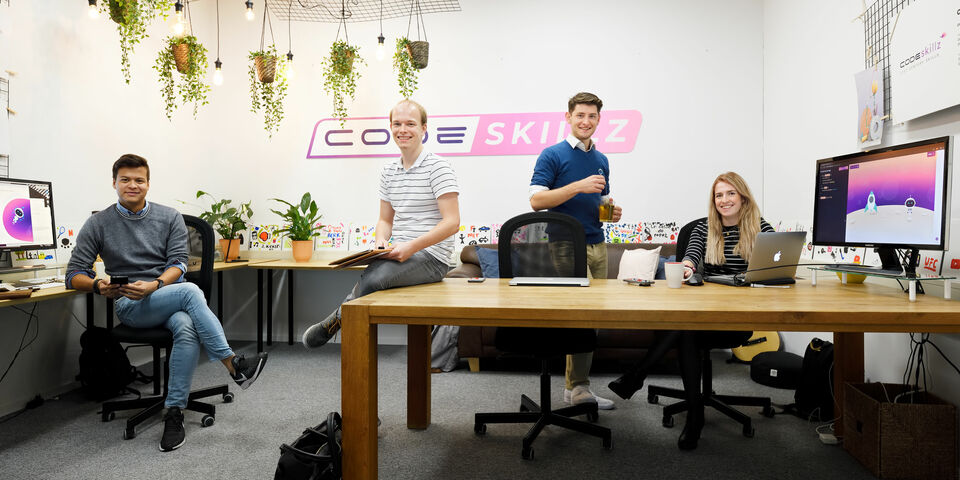

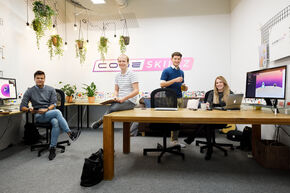
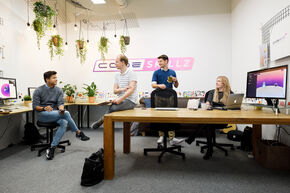
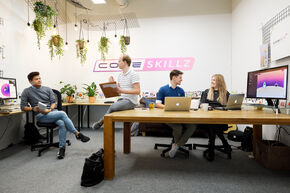
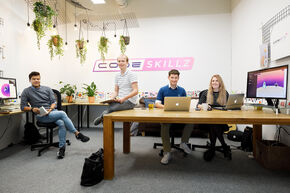
Discussion